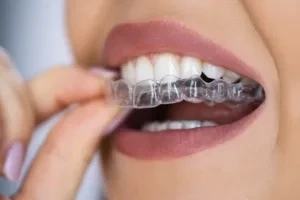Family dental services refer to a multiple facet of dental care that focuses on treating dental diseases compelling for people of all ages. These services typically include check-ups, annual exams, fillings, crowns, bridges, veneers, gum disease treatments, root canals, extractions, dental surgical procedures, tooth whitening, and other emergency treatments. A family dentist is trained to cater to the oral health requirements of every age group of people within a family; therefore, their services are easy to access.
Why should I choose a family dentist over a pediatric or general dentist?Choosing a Family Dental Services offers several advantages:
Convenience: All family members can receive care at the same dental practice.Continuity of care: Family dentists can treat patients from childhood through adulthood, providing a consistent care experience.Comprehensive care: Family dentists are equipped to handle various dental issues for all age groups.Comfort: Having a familiar dentist can reduce anxiety, especially for children. What services are typically offered by family dentists?Family dentists offer a broad spectrum of services, including:
Preventive care: Regular check-ups, cleanings, fluoride treatments, and sealants.Restorative care: Fillings, crowns, bridges, and root canals.Cosmetic dentistry: Teeth whitening, veneers, and bonding.Orthodontics: Braces and Invisalign.Pediatric dentistry: Specialized care for children, including education on proper oral hygiene.Emergency dental care: Treatment for dental injuries or sudden pain.Periodontal care: Treatment for gum disease. How often should my family visit the dentist?It is recommended that all family members visit the dentist every six months for routine check-ups and cleanings. However, the frequency may vary based on individual needs, such as a higher risk of dental issues or ongoing treatment plans. Your family dentist can provide a personalized schedule.
What can I expect during a routine dental check-up?A routine dental check-up typically includes:
Oral examination: The dentist will check for cavities, gum disease, and other oral health issues.X-rays: These may be taken to identify issues not visible during the oral exam.Professional cleaning: A dental hygienist will remove plaque and tartar, polish your teeth, and provide fluoride treatment.Consultation: The dentist will discuss any findings, recommend treatments, and offer advice on maintaining oral health. How do I prepare my child for their first dental visit?Preparing your child for their first dental visit can help reduce anxiety and create a positive experience:
Talk positively: Explain the visit in a simple, positive way, avoiding words like "pain" or "hurt."Read books/watch videos: There are many children's books and videos about visiting the dentist that can help familiarize your child with the process.Schedule wisely: Choose a time when your child is well-rested and not hungry.Be a role model: Let your child see you practicing good oral hygiene and having a positive attitude about dental visits. What should I do in case of a dental emergency?In case of a dental emergency, such as a knocked-out tooth, severe toothache, or broken tooth, contact your family dentist immediately. Most family dental practices offer emergency services or can refer you to an emergency dentist. Meanwhile, you can take steps like applying a cold compress for swelling, using over-the-counter pain relief, or placing a lost tooth in milk to preserve it.
How can I help my family maintain good oral health at home?Maintaining good oral health at home involves:
Brushing: Encourage brushing twice a day with fluoride toothpaste.Flossing: Ensure daily flossing to remove plaque between teeth.Healthy diet: Limit sugary snacks and drinks; opt for a balanced diet rich in fruits and vegetables.Regular dental visits: Keep up with scheduled check-ups and cleanings.Education: Teach proper brushing and flossing techniques and explain the importance of oral hygiene. What are dental braces, and are they beneficial for children?Invisable Braces Malta are thin, protective coatings applied to the chewing surfaces of the back teeth (molars) to prevent cavities. They are especially beneficial for children as these teeth have grooves that can trap food and bacteria, making them prone to decay. Sealants are quick to apply, painless, and can effectively protect teeth for several years.
How can I manage my child's dental anxiety?Managing dental anxiety in children can be challenging, but there are several strategies that can help:
Early exposure: Start dental visits at a young age to build familiarity.Positive reinforcement: Praise and reward your child for good behavior during dental visits.Distraction: Bring a favorite toy, book, or music to the appointment.Sedation options: Discuss with your dentist the possibility of sedation options if anxiety is severe. What should I know about fluoride treatments?Fluoride treatments are a preventive measure to strengthen teeth and prevent cavities. These treatments are especially beneficial for children but can also be recommended for adults at high risk of decay. The dentist applies a concentrated fluoride solution to the teeth, which helps to remineralize enamel and protect against acid attacks.
Are X-rays safe for my family?Dental X-rays are generally safe and involve very low levels of radiation. They are a valuable diagnostic tool that helps dentists detect issues not visible during a regular exam, such as cavities between teeth, bone loss, and impacted teeth. Modern digital X-rays further reduce radiation exposure. However, it's essential to inform your dentist if you are pregnant or have any health concerns.
What are the benefits of orthodontic treatment for children and adults?Orthodontic treatment, such as braces or Invisalign, offers several benefits for both children and adults:
Improved oral health: Straight teeth are easier to clean, reducing the risk of cavities and gum disease.Enhanced appearance: Orthodontics can improve the alignment of teeth and the overall smile.Better function: Properly aligned teeth improve bite function, reducing issues like jaw pain and difficulty chewing.Boosted confidence: A straight, attractive smile can enhance self-esteem and confidence. How do I choose the right family dentist?Choosing the right Dental Service involves considering several factors:
Qualifications and experience: Ensure the dentist has appropriate credentials and experience in treating patients of all ages.Range of services: Check if the practice offers comprehensive services that meet your family's needs.Location and hours: Choose a conveniently located practice with flexible hours.Reputation: Read reviews and seek recommendations from friends or family.Comfort level: Visit the practice to ensure a welcoming environment and friendly staff.


